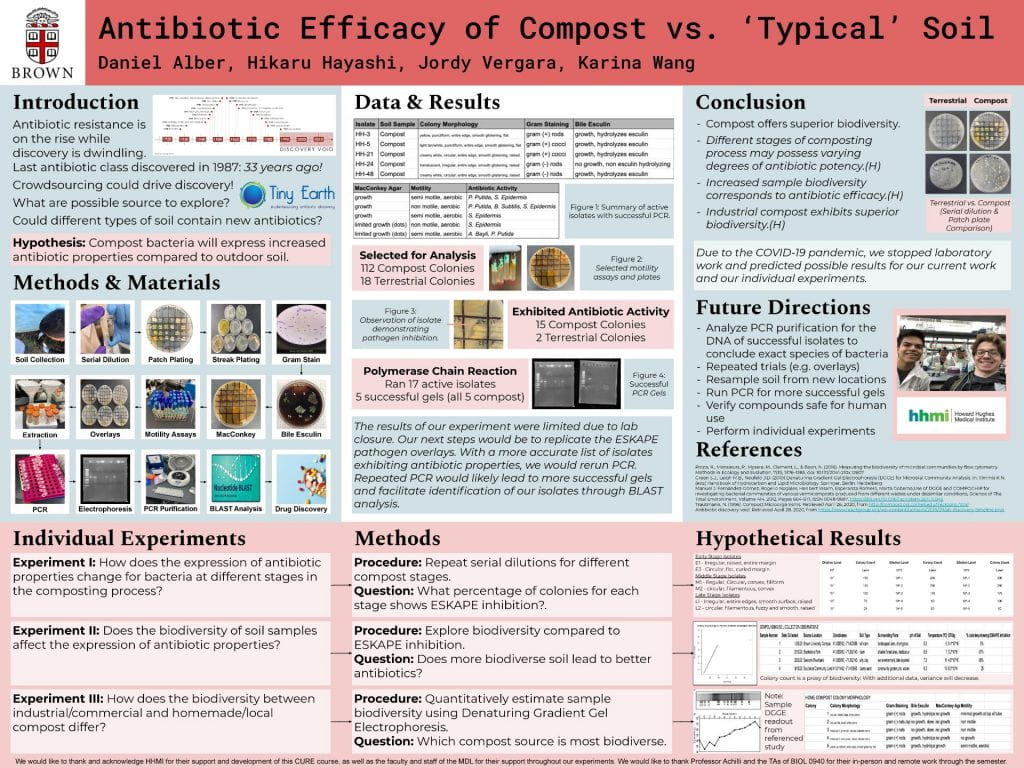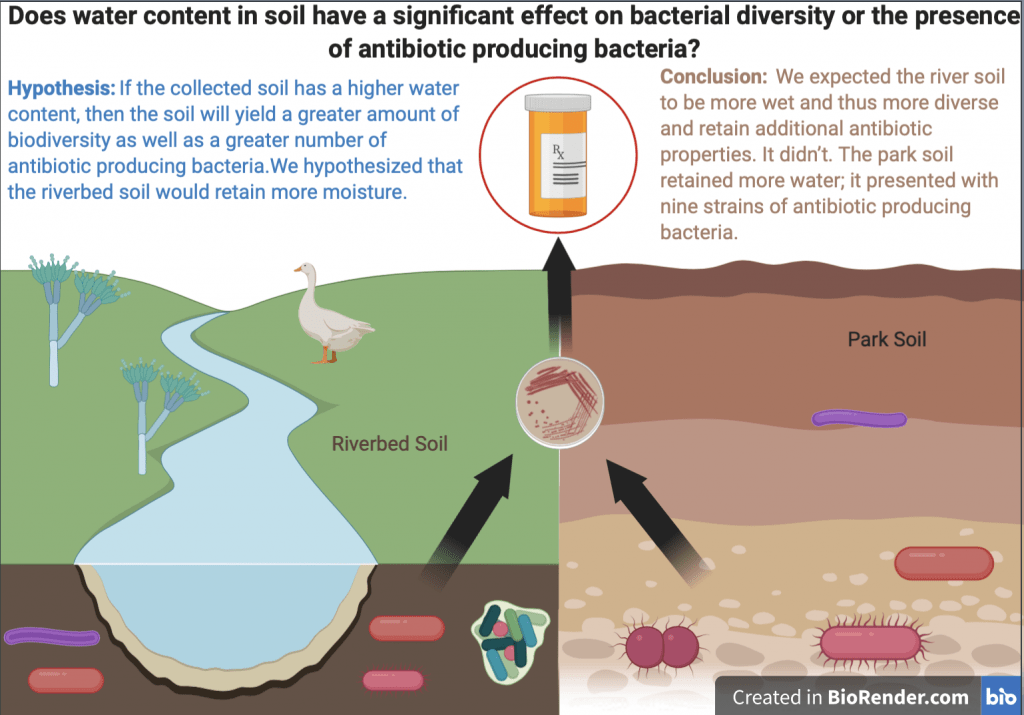
Class: BIOL 0940G Antibiotic Drug Discovery: Identifying Novel Soil Microbes to Combat Antibiotic Resistance
Instructor(s): Dr. Toni-Marie Achilli
Student(s): Daniel Alber, Jordy Vergara, Hikaru Hayashi, Karina Wang
“The CURE class setup influenced me to be more critical of scientific papers, spending time in class to present and critique scientific literature.”
-Jacob Zimmerman
Description:
The aim of the course was to examine unique soil environments for bacteria expressing antibiotic properties. With widespread antibiotic resistance and a lack of research in the pharmaceutical industry this course offered the excitement of potentially finding the next life-saving antibiotic drug! Working in groups, we were able to design research protocols and gain experience with a range of microbiology lab techniques. We explored the potential of compost bacteria to produce antibiotic substances. We hypothesized that compost biodiversity would lead to superior antibiotic properties.
Our project investigated if compost bacteria would express increased antibiotic properties compared to outdoor soil due to compost previously interacting with human beings, which could lead to some results that could pertain to human antibiotics. While our project was halted in the laboratory due to the COVID-19 pandemic, we got our preliminary results that the compost had superior biodiversity, as well as being the compost bacteria being the only ones able to be identified through PCR.
The CURE class setup allowed us to learn and perform many new laboratory techniques, as well as work together in a group, which can help us in future experiences in research and careers. I heard about CURE through the Courses@Brown website and looked into it further after finding out it would be an opportunity to engage in research while in a class setting. After taking this CURE course, I feel more excited and able to look for and engage in research on campus and not be as intimidated as I was. It also helped me build strong connections with both other students and faculty, which is a truly valuable experience while at Brown.

